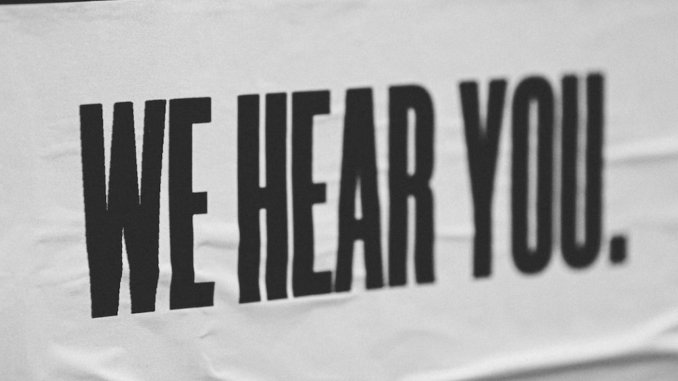
Introduction
This article is a self-confessed flight of fancy and almost certainly impossible, but maybe can be a springboard to spark other ideas. We already have intellectual property rights for music etc etc.
I propose that your own data is your own property as an inalienable right. It would be illegal for others to store it, let alone trade it, even governments. The idea is to give maximum protection to the individual and take power from governments and large corporations. Is it really that much of a jump, if there is the will to do it?
This takes us down some interesting rabbit holes.
Why governments cannot be trusted with too much data
Government collects and collates an enormous amount of data which is never enough, and is used to meddle in our lives for our own good – they just can’t help themselves. It is at a vast cost and a needless invasion of our privacy.
Limiting the power of governments and big business would be for our own good. It would also protect our governments from themselves. One big example of upcoming dangers where a government wouldn’t be able to control itself and meddle is money. Governments are now looking at national cryptocurrencies to replace our worthless IOUs.
At the moment, if you pay anything in cash it is anonymous. Large items will have your details, but little items will be a nameless receipt at most. If you pay by card, the bank will make a note against your account. At the end of day it will work out who needs paying in which banks. Then through the Bank of England any total movements between banks will be transferred. Only your bank knows who you’ve paid.
With a government cryptocurrency, the record of payment will be there for it to see. It would also be responsible for deciding whether or not a payment can go through, based on whether or not you have funds to pay – fair enough: but having the ability to refuse a payment can be used to also leverage control.
- Your currency would have to be accessed by a device.
- The government would give you benefits/pensions via this system – which could be time limited.
- If they wanted to lockdown the country, they could prevent you from paying for goods outside your own house.
- Due to strain on the NHS, it might notice you’re eating the wrong foods and limit spending on goods up to certain amounts of say, salt, sugar or fat.
And that is barely touching the many possibilities. Look at how this week PayPal had a second try at controlling us. It threatened that it would withdraw up to $2500 from any account where the holder was seen in their opinion to be acting contrary to how PayPal would like them to.
So how would owning your own data work?
Where is the data stored?
Everyone would need a data account. These would be on privately owned databanks. Free for basic information, maybe non-essential data storage for a cost. It would be possible to change providers. Databanks would need to meet certain criteria.
Governments and other legal entities (e.g. a police force) would have access to certain records depending on need. There would be strict laws on what is allowed – each item individually proscribed, not a carte blanche. They would have certain rights to write data to your account, but they wouldn’t be allowed to have the data on their own systems.
So you would own all your own medical data, where you live (land registry would link to it), criminal convictions, education records, and many more besides.
Whether it is possible for commercial companies to be only able to access your name & address for invoicing etc, rather than have it stored I don’t know. On paper records it would probably have to be allowed. Either way, they would be in serious hot water if found to be using it for commercial advantage – and yes that means targeting advertising.
Efficiency
Only one database with your address etc. on it – how much storage space would that actually save?
User identification
Everyone in the country would have an account with a unique identifier. Different labels for citizens, visitors, companies/other legal entities. This could even be used to hide a user’s identity if wished.
Voter ID
The data can be used to confirm the right to vote and where. This could be done without human interaction and via personal servers that would leave the process anonymous.
Social media
Also all social media posts are yours. Linked from your data record. Providers are not allowed to store your data. You can still be anonymous but it will be possible to trace a post if required with a court order. All posts from abroad will be at the service provider’s risk. All posts within the UK will be at the poster’s risk. Making us the owners will protect freedom of speech for our population, while removing the need for platforms to engage in legally difficult & expensive censorship. Also by making platforms responsible for all content they supply to the UK, we can ensure that we have legal recourse to prosecute the platforms when required, and leave them to recover costs from their users abroad.
Entering our web space is as much a trespass as physically entering our country and needs to be treated as such. Look at providing licences to display a webpage in the UK if from abroad. More for traceability and data protection and ability to fine if breaking UK laws. If there are reciprocal laws to protect UK people then maybe licences could be dropped from those countries.
End Note
I’ve probably barely scratched the surface of implications. Whether any of this is possible, or even the loss of outside connectivity with the rest of the world makes it too counterproductive I don’t know, but it has given me many hours of fun pondering over it.
Final, final note. Whatever we do, with all this information somewhere, governments in a crisis will be drawn to help themselves and will make laws to do so. With the OTF way, it is hoped the crisis would be less likely to happen.
Policies
Policies have not been listed as the article is a policy and a half within itself.
Next up – Only one way to do it – secretly in person: Part 11 – Voting
© Jerry Mandarin 2022



